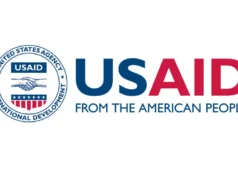How To Get Canada Work Permit
To work in Canada, a foreigner needs to have a work permit. There are several types of permits and in certain cases, it is possible to work without having such a permit.
A. Open-type work permits
This permit allows you to work without restriction, that is, without the restriction of employer and limit of hours. However, certain restrictions apply, for example, you are not allowed to work in a sex-related industry.
Who is entitled to an open work permit?
People who are already in Canada with a valid work permit, regardless of the type, and in the process of permanent residence having passed the first stage of eligibility (Federal Skilled Workers, Canadian Experience, Provincial Nomination, Skilled Trades or humanitarian cases, as well as Live-in Caregiver).
The partners of skilled workers with a level 0, A or B job or of students (of a career, not languages unless said language course is taken at a university or technical college);
Participants in the Vacation and Work ( International Experience ) program or Canada World Youth Program / Jeunesse Canada Monde;
Asylum seekers awaiting a decision;
Family members of a foreign diplomat or military officer working in Canada;
Professional athletes playing for a Canadian team and needing extra work to support themselves;
graduates from a designated educational institution, couples have access to a permit only if the student will already have a level 0, A, or B job.
B. Work permits with a valid offer of Employment
People who have a job offer for a specific employer generally need first to have the employer validate the offer with the government. This involves showing that there is no Canadian citizen or permanent resident who can do the job in question.
This process is called Labor Market Impact Assessment (LMIA in English or EIMT in French – Étude d’impact sur le marché du travail,Impact Assessment on the Labor Market); In other words, a company must obtain an opinion to the effect that hiring a foreigner will have a positive or neutral effect on the Canadian labor market. For example, not only does the foreigner not come to take a job that a Canadian could have filled, but also hiring the foreigner will bring benefits to the labor market.
C. LMIA Exempt Work Permits
The following people are exempted from obtaining work permit:
Students who need to do an internship as part of the studies (co-op work permits);
Intra-Company Person Transfers (for workers of a company that has a subsidiary/branch in Canada);
Exchange programs ( international experience for young people from certain countries; professors and academic seminarians);
Religious and charity workers;
Academic researchers, visiting professors;
Entrepreneurs or self-employed workers, whose business plan will provide a significant benefit to Canada;
French-speaking skilled workers can apply for a work permit for level 0, A, or B job offers if they will be working in French outside the province of Quebec.
Workers under an international agreement.
D. Working without a work permit
Generally, the following people can work without a work permit, in Canada for a short period of time, without entering the labor market:
Full-time students at a designated educational institution (only institutions that can award diplomas, such as universities, colleges, and professional schools – this excludes private language institutions) who work on the institution’s campus, as an employee of the institution or of a private company located on campus, or as a freelance worker. It is sufficient to go to a Service Canada office to obtain your social security number based on your study permit. This number is mandatory in order to work.
Business visitors ( business visitors ) coming to Canada to participate in international business activities without entering the Canadian labor market. Generally, but not exclusively, it is a paid job from abroad for a period of fewer than 6 months
-Athletes participating in a sporting event in Canada
-Aviation Accident Investigators and Aviation Investigators
-Religious counselors / preachers / representatives
-International event organizers
-Crew working for a foreign transport company
-Professors and academic researchers
-Representatives of a foreign government; United Nations diplomats
-Military personnel
-Journalists, film and media crews, employer for a foreign company
-Artists for a short time, without entering the Canadian job market
* The list of types of work presented in this note is not exhaustive.









